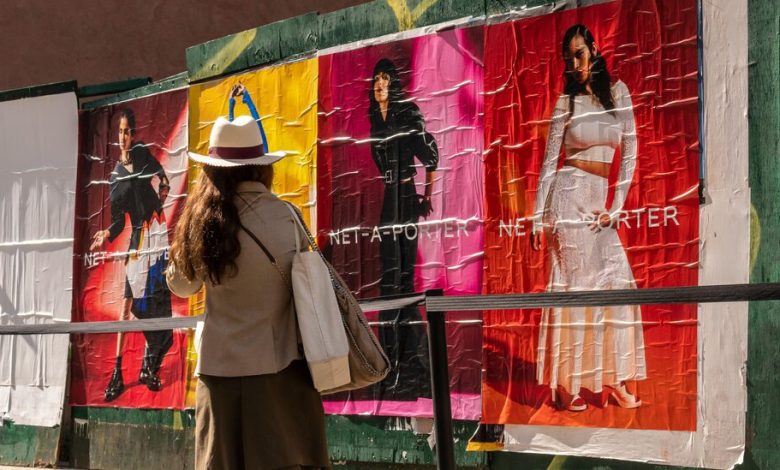Has the Luxury E-Commerce Bubble Burst?

Rosh Mahtani, the founder of the jewelry brand Alighieri, is celebrating the 10th anniversary of her company this year. Her handmade gold-plated pieces, inspired by Dante’s “Divine Comedy,” made her a winner of the Queen Elizabeth II Award for British Design and a mainstay of luxury e-commerce vendors.
During Paris Fashion Week last month, buyers came to her showroom to select stock for the upcoming season, including MatchesFashion, a leading multibrand fashion retailer that is responsible for about half a million pounds, or $630,000, of Alighieri’s projected revenues. But there was a problem.
“They had owed me 70,000 pounds [about $88,000] in unpaid invoices since October and had been asking for discounts on those bills,” Ms. Mahtani said last week. It made her uneasy, even if such bargaining was increasingly commonplace for independent brands like hers. Still, she said, she wasn’t quaking in her boots.
“The team made a selection, and we talked about a capsule collection for the summer,” she said. “I don’t think any of us had a sense of what would come next.”
Days later, MatchesFashion was put into administration (the British term for bankruptcy). Its owner, Frasers Group, which bought the company in December for about 52 million pounds, or $66 million, now said the operation was not commercially viable. Overnight, almost half of the staff was fired from a company that had been valued at $1 billion when it was sold to Apax Partners in 2017. Today, 200 brands are owed money and cannot access unsold inventory, and a furious customer base rages online about accessing orders or making returns.